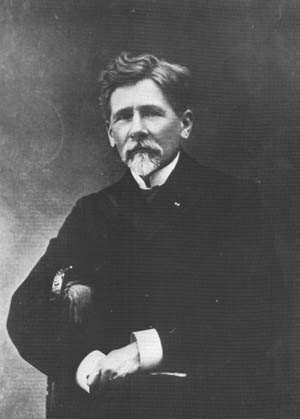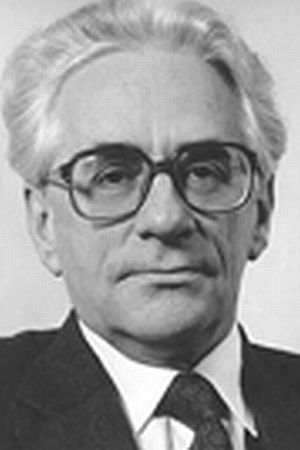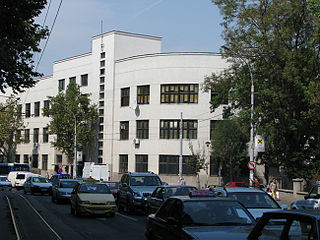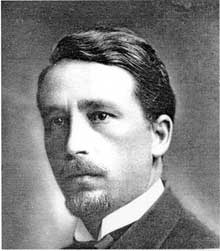
The University of Belgrade is a public university in Serbia. It is the oldest and largest modern university in Serbia.

Jovan M. Žujović was a Serbian anthropologist, known as a pioneer in geology, paleontology and craniometry in Serbia.

Simeon Milivoje Lozanić and Simeon "Sima" Lozanić was a Serbian chemist, president of the Serbian Royal Academy, the first rector of the University of Belgrade, minister of foreign affairs, minister of industry and diplomat. At the Grandes écoles and later when it transformed into the University of Belgrade he taught chemistry and electrosynthesis.

Aleksandar Despić was a Serbian physicist and academic. Despić received his PhD degree from the Imperial College of Science and Technology, London. He was a professor at the Faculty of Technology, University of Belgrade and his scientific interests include fundamental and applied electrochemistry. He was the President of the Serbian Academy of Sciences and Arts from 1994 to 1998.

Pasko Rakic is a Yugoslav-born American neuroscientist, who presently works in the Yale School of Medicine Department of Neuroscience in New Haven, Connecticut. His main research interest is in the development and evolution of the human brain. He was the founder and served as Chairman of the Department of Neurobiology at Yale, and was founder and Director of the Kavli Institute for Neuroscience. He is best known for elucidating the mechanisms involved in development and evolution of the cerebral cortex. In 2008, Rakic shared the inaugural Kavli Prize in Neuroscience. He is currently the Dorys McConell Duberg Professor of Neuroscience, leads an active research laboratory, and serves on Advisory Boards and Scientific Councils of a number of Institutions and Research Foundations.

Marko T. Leko was a notable Serbian scientist, chemist, professor and president of the Serbian Red Cross. He played a major role in the professionalisation of chemistry in Serbia.

First Belgrade Gymnasium is a gymnasium with a long tradition, founded in 1839 in Belgrade, Serbia. Since 1938, it is situated in the center of the city, on 61 Cara Dušana Street. The Church of St. Alexander Nevsky is located next to the school.
Rakić is a surname in former Yugoslavia: mainly in Serbia but also in Bosnia, Croatia, Montenegro, and Slovenia, and may refer to:
Ljubisav Rakić was a Serbian neurobiologist, professor and academic.

The Belgrade Faculty of Medicine is a constituent institution of the University of Belgrade, which offers a wide range of academic courses in Serbian and English, including specialist practice within a network of hospitals, institutes and medical clinics. The School of Medicine includes 40 departments with over 200 professorships.
Aleksandar Popović Sandor, born Aleksandar Popović, was the father of Serbian geology. He first described the geology and natural wonders of Mount Fruška and what became in 1960 the Fruska Gora National Park. He did the first scientific investigation of the mineral springs at Vrnjačka Banja.
Iván Gutman is a Serbian chemist and mathematician.

Ivan Đaja was a Serbian biologist, physiologist, author and philosopher.

The First Serbian Observatory is located in Belgrade, in 8, Bulevar oslobođenja, and it has the status of a cultural monument of exceptional importance.
Sava Urošević was a Serbian mineralogist, geologist, rector of the University of Belgrade, and a member of the Serbian Academy of Sciences and Arts and many other professional organizations, including the Chemical Society. He is recognized as one of Serbia's most renowned scientists in his field.
Vukić Mićović was a Serbian chemist, professor and dean of the Faculty of Natural Sciences and Mathematics in Belgrade, rector of the University of Belgrade and academician of SANU.
Mihailo Rašković was a chemist, professor at the Belgrade Lyceum and the Visoka škola. he is best remembered in Serbia as one of the fathers of modern Chemistry along with Sima Lozanić and Marko Leko.
Eduard Mihel was a Serbian physician of Czech origin. He is remembered as a pioneer of modern forensic pathology.
This page is based on this
Wikipedia article Text is available under the
CC BY-SA 4.0 license; additional terms may apply.
Images, videos and audio are available under their respective licenses.









